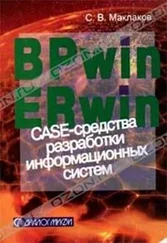“And just during the sprint, too,” he moaned. “Damn …”
“Norbert!” Miss Veegaete said sharply.
The television let out a dying wheeze, at which the picture changed to a snowstorm.
“Right, that just about finishes it,” growled Norbert.
He got up, flung his newspaper on the settee, switched the television off and came to sit at table with the rest of us.
“I might as well have a piece of that gâteau now.”
Louise cut him a slice.
“Indeed my lad,” said Miss Veegaete with a glance in my direction, “you’ll be in Master Norbert’s class soon. Just a few more days and it’ll be time for you and me to say goodbye.”
“Oh dear,” the grandmother replied, “he does so like his Miss.”
Little Linda gave a scornful chuckle. “ Pauvre petit …”
“Did you hear that!” Miss Veegaete tittered. “So amusing!”
*
Master Norbert could very well have done with two chairs. The one he sat on struggled valiantly to support his rear, but was unable to suppress the occasional mild groan. Master Norbert’s torso seemed intent on annexing his head. It would not be long before there was barely a dent to separate the two.
“He’s a fine reader, this little chap,” said Miss Veegaete, “but his arithmetic isn’t as good as it should be.”
“’Rithmetic,” cried Master Norbert, “I’ll teach him ’rithmetic. Once I get my hands on him he’ll be doing sums like a cashier. Multiplication tables in the morning. Divisions in the afternoon. He’ll be up to his eyes in ’rithmetic.”
Master Norbert’s glasses were so heavily framed I could not tell if it was me he was looking at. I prayed it was not. The look in his eyes told of a fathomless lassitude, against which I rebelled quite spontaneously two months later. I became an expert in long division.
He was the monstrous antithesis of his sister. They had to be identical twins, that was it, and all the spite, all the loutishness had collected in him. I often saw his grey-coated figure shambling across the playground. On sunny days when the windows were open his dull cleric’s voice could be heard all over the school intoning, “In the name of the Father, the Son and the Holy Ghost, amen,” with his pupils falling in after a two-syllable delay. His geography lessons consisted of indicating the different countries on the maps above the blackboard with a long pointer.
“’Rithmetic and the regions of Belgium, that’s good mental exercise … polders, coastal regions …”
This time I knew it was me he was looking at.
“There’s Haspengouw, where they grow juicy pears … and the Condroz, where the cattle are sleek and the girls as creamy as farm butter.”
He thought he was very witty. His laughter was an earthquake, with his navel marking the epicentre.
“And all of that together, that’s Belgium for you. Flemings and Walloons under one king and crown.” He dropped his hands wearily on the table. “Fat lot of good it did us,” he muttered.
*
There was still at least a quarter of the millefeuille left when Louise disappeared with it into the kitchen, leaving me not only with a hollow feeling in my stomach but also at the mercy of Master Norbert.
Miss Veegaete and the grandmother had gone upstairs, and little Linda had skipped along at their heels without any objections being raised. I could hear them talking and thumping about overhead. Miss Veegaete would have slipped on her dress by now and be striking balletic poses in front of the mirror. What else could be setting the chandelier over the table so ecstatically atremble? I felt cruelly excluded. I had observed Miss Veegaete in her new dress just once, but at that stage the segments were still loosely stitched together, giving her a higgledy-piggledy, Frankenstein-like look.
Master Norbert inserted his thumb halfway into his mouth to scrape the back of his teeth, pulling a face like a gargoyle on the flying buttress of a Gothic church. His unshaven cheeks and moustache shrouded the bottom half of his face in darkness. His stomach gave out regular rumbles, as though the triumphant ingestion of all that cake and coffee were only now being celebrated.
I was awestruck. He would obliterate me, I was sure. Shatter everything that was mine. Wring the life out of me and smother me with his bulbous mass. I felt a blind rage well up inside me and longed desperately to turn to stone there and then, a solid rock of granite capable of withstanding the force of hammers, chisels and files.
Master Norbert collected the spittle in his mouth and pushed it out between his front teeth with the tip of his tongue. There was no trace of embarrassment. He was fossilised in his habits. He was a great big rock himself, one of those erratic boulders that found their way here when the ice cap melted millions of years ago. He had come inching southwards, inexorably, smugly, flattening everything in his path. I could picture him heaving into the classroom, and there was no doubt in my mind that he would pull hairs out of his nostrils and lick up earwax from the ball of his thumb, which he’d hold under his nose first, of course, to smell the gobbets.
From the depths of his gut rose a bubble of gas. It burst in his throat with a dry pop followed by a burbling sound, like a barrel of cider being uncorked in the cellar.
It was not long before Louise returned from doing the dishes in the kitchen, for which I was deeply grateful. She was wearing an apron, and there were suds on her wrists.
Before taking her seat at the table she raised her fingers to her temples. It was only then that I noticed she wore a wig. She turned to address me.
“All this time I’ve been wondering,” she said in her squeaky voice, “who the little chap might be, the one who’s always by himself. I see you every day, you know, from my kitchen window. You don’t play marbles. You don’t join in with the others. You don’t play Cowboys and Indians. Just as well, too, I’d say. All those nasty guns going bang bang bang …”
“Takes after Marcel, he does,” growled Norbert.
By the time Louise came into the room he had terminated his tooth-cleaning session, much to my relief.
“Marcel always kept to himself, too.”
“But his heart was in the right place,” said Louise, “and he had a wonderful singing voice. Goodness me, how that boy could sing. How about you, can you sing well? Marcel was a right nightingale.”
“A right idealist, too. Perhaps too much so …” Norbert opined. He could not resist the temptation to stick his pinkie in his ear and give it a little twist.
“Not like you, eh,” grinned Louise. “Always making a run for it, you were. They probably needed special bullets to keep up with you.”
Norbert’s cheeks reddened. A fresh eruption announced itself in his intestinal tract. He tilted his chair back and stabbed the air with his forefinger.
“And I’d do a runner all over again, Goddammit! What d’you take me for? Some poor sod cowering in a trench? Convenient, that — all they’d need to do is shovel some earth on top. For Flanders, they told us. To battle! I’d do a runner, that’s for sure …”
“You wouldn’t have lasted more than two seconds before dropping dead like a stuck pig,” Louise chuckled. “We’re getting on, Norbert. Rickety farm carts, all three of us.”
Norbert calmed down. His eyes were fixed on mine, and his expression softened. “Let’s hope he’ll have some gumption, if it ever happens again.” His voice took on an unexpectedly fatherly tone. “If I had a boy of my own and all that stuff and nonsense started up again, I’d keep him chained up in the cellar. Well, it’s all in the past now, what’s done is done.”
He retreated into silence. Footsteps thumped down the stairs.
Читать дальше












